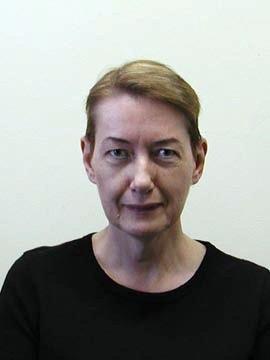
Clare Kinney
Associate Professor
Specialties
16th C British, 17th C British, Genre Studies, Medieval, Renaissance
Office Address/Hours
435 Bryan Hall / Tuesday 12.45-2.00 (in person), Wednesday: 5.00-6.00 (Zoom—email me for link), or by appointment
Class Schedule
TuTh 11.00-12.15
Degrees
Ph.D. Yale, 1984
M.A. Cambridge, 1982
B.A. Cambridge, 1979
M.A. Cambridge, 1982
B.A. Cambridge, 1979
Books
Strategies of Poetic Narrative: Chaucer, Spenser, Milton, Eliot, Cambridge University Press, 1992
Edited Works
Ashgate Critical Essays on Women Writers in England, 1550-1700 Volume 4 Mary Wroth, Farnham, Surrey and Burlington, VT: Ashgate, 2009
Selected Articles
-
"Much Ado about Noting: Wit and ‘Realness’ in Mary Wroth’s Urania,” Sidney Journal 40 (2022).
-
“Reframing Astrophil’s ‘sad steps’: the Reception History of Astrophil and Stella 31 and Sidney’s Poetics,” Sidney Journal 39 (2021).
-
“Mary Wroth Romances Ovid: Refiguring Metamorphosis and Complaint in The Countess of Montgomery’s Urania,” A History of Early Modern Women’s Writing,” ed. Patricia Phillippy (Cambridge: Cambridge University Press, 2017), 241-257
-
“Imaginary Transparency: Some Reflections on the Editing of Early Modern Women’s Drama,” Early Modern Culture 12 (2017) Article 3. https://tigerprints.clemson.edu/emc/vol12/iss1/3
- “Spenser and Romance.” Edmund Spenser In Context, ed. Andrew Escobedo (Cambridge University Press, 2016), 120-130.
- "Untellable Tales,” Afterword to Maternity and Romance Narratives in Early Modern England, ed. Naomi Miller and Karen Bamford (New York: Ashgate, 2015), 193-203.
- “Continuations and Imitations of the Arcadia,” Ashgate Research Companion to the Sidneys 1500-1700, Volume 2, ed. Michael Brennan, Margaret Hannay and Mary Ellen Lamb (New York: Ashgate, 2015), 113-129.
- “Turn and Counter-Turn: Reappraising Mary Wroth’s Poetic Labyrinths,” in Re-Reading Mary Wroth, ed. Naomi Miller and Katherine Larson (New York: Palgrave Macmillan, 2015): 85-102
- “Escaping the Void: Isolation, Mutuality and Community in the Sonnets of Wroth and Shakespeare,” in Mary Wroth and Shakespeare, ed. Paul Salzman and Marion Wynne-Davies (NY: Routledge, 2015): 25-36.
- “Trawthe and tresoun: translating Sir Gawain and the Green Knight,” in Aesthetics in Old and Middle English Poetry: Essays in Honor of Howell D. Chickering, Jr., ed. John Hill, Bonnie Wheeler and R.F.Yeager (Toronto: PIMS, 2014): 228-243.
- “Critical Theater: Restaging Romance in The Countess of Montgomery’s Urania,” The SidneyJournal 31 (2013): 101-117.
- “‘More lively, parfett, lasting, and more true’: Mary Wroth’s Indefensible Apologies for Poetry,” in The History of British Women’s Writing 1610-1690, vol. 3, ed. Mihoko Suzuki (Basingstoke: Palgrave-Macmillan, 2011): 155-170.
- “The Shepheardes Calender,” in The Spenser Handbook, ed. Richard McCabe (Oxford: Oxford University Press, 2010): 160-177.
- “Sidney’s Arcadia, Romance, and the Responsive Woman Reader” in A Companion to Tudor Literature and Culture 1485-1603, ed. Kent Cartwright (Oxford: Blackwell, 2010): 395-411.
- “The Gentlewoman Reader Writes Back: Mrs Stanley’s Sir Philip Sidney’s Arcadia Moderniz’d,” Sidney Journal 27 (2009): 39-53.
- “Undoing Romance: Beaumont and Fletcher’s Resistant Reading of The Countess of Pembroke’s Arcadia,” in Staging Early Modern Romance: Prose Fiction, Dramatic Romance and Shakespeare. Ed. Mary Ellen Lamb and Valerie Wayne (New York: Routledge, 2009): 203-218.
- “Beyond Shakespeare,” in What Should I Read Next? Ed. Jessica Feldman and Robert Stilling (Charlottesville: University of Virginia Press, 2008): 179-183.
- “Clamorous Voices, Incontinent Fictions; Orality, Oratory and Gender in William Baldwin’sBeware the Cat,” Gender and Oral Traditions in Early Modern Texts, ed. Karen Bamford and Mary Ellen Lamb (Burlington, VT, Ashgate, 2008): 195-208.
- “Chaucer’s Dialogic Imagination: Teaching the Multiple Discourses of Troilus and Criseyde” in Approaches to Teaching Chaucer’s Troilus and Criseyde and the Shorter Poems, ed. Angela Weisl and Tison Pugh (2007)
- “‘Love which hath never done’: The Countess of Pembroke’s Elegies and the Apology for Copia,” The Sidney Journal 21 (2004).
- "Marginal Presence, Lyric Resonance, Epic Absence: Troilus and Criseyde and/in The Shepheardes Calender," Spenser Studies (2004).
- "'Beleeve this butt a fiction': Female Authorship, Narrative Undoing and the Limits of Romance in The Second Part of the Countess of Montgomery's Urania," Spenser Studies (2003).
- "''What s/he ought to have been': Romancing Truth in Spencer Redivivus." Spenser Studies (2002).
- "Mary Wroth's Guilty 'Secrett Art': The poetics of Jealousy in Pamphilia to Amphilanthus" in Write or Be Written: Early Modern Women Poets and Cultural Constraints, ed. U. Appelt and B. Smith (2001).
- "Infinite Riches and Very Little Room: Speeding Through Some Sonnets in the Introductory Historical Survey" in Approaches to Teaching Shorter Elizabethan Poetry, ed. P Cheney and Anne Lake Prescott (2000).
- "Epic Transgression and the Framing of Agency in Dido Queen of Carthage" SEL (2000).
- "Thomas Speght's Renaissance Chaucer and the Solaas of Sentence in Troilus and Criseyde" in Chaucer Refigured in the Renaissance, ed Theresa M. Krier (1998).
- "Feigning Female Faining: Spenser, Lodge, Shakespeare and Rosalind," MP (1998).
- "Endgames: Gender, Genre and Closure in Anna Weamys's Continuation of Sir Philip Sidney's Arcadia" Sidney Newsletter and Journal (1997).
- "Chivalry Unmasked: Courtly Spectacle and the Abuses of Romance in Sidney's New Arcadia," SEL (1995).
- "The (Dis)embodied Hero and the Signs of Manhood in Sir Gawain and the Green Knight," in Medieval Masculinities, ed. Clare A. Lees (1994).
- "Postscript from the Canon's Mouth," Callaloo, (1994).
- "Lost in Translation: The Vicissitudes of the Heroine and the Immasculation of the Reader in a Seventeenth-Century Paraphrase of Troilus and Criseyde," Exemplaria (1993).
- "'Who made this song?': The Engendering of Lyric Counterplots in Troilus and Criseyde," SP (1992).
- "The Masks of Love: Desire and Metamorphosis in Sidney's New Arcadia," Criticism (1991).
Honors
Paul W. Mellon Fellow, Yale, 1979-1981